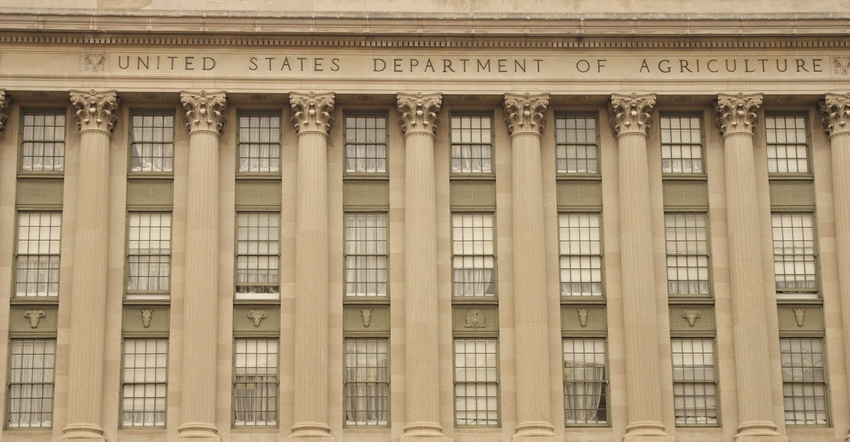Oversight agency defends procedures AMS took in withdrawing Organic Livestock & Poultry Practices rule.

The Government Accountability Office (GAO) found that the U.S. Department of Agriculture’s Agricultural Marketing Service (AMS) was in compliance with the procedural steps required in the agency’s withdrawal of the Organic Livestock & Poultry Practices rule.
USDA published the final rule's withdrawal on March 13, 2018. It was first proposed as a final rule in Jan. 19, 2017, in the final days of the Obama Administration. The Organic Trade Assn. (OTA) has challenged the rule's withdrawal in a lawsuit, as have several nonprofit special interest groups, including the Center for Food Safety.
Through the cost/benefit analysis, GAO detailed agency actions relevant to the Regulatory Flexibility Act and the Administrative Procedure Act and how the agency complied with the needed steps in the withdrawal of the rule.
“Our review of the procedural steps taken indicates that AMS complied with the applicable requirements,” GAO managing associate general counsel Robert Cramer said in a letter to Senate Agriculture Committee chairman Pat Roberts (R., Kan.) and House Agriculture Committee chairman Mike Conaway (R., Texas).
AMS estimates that withdrawal of the final rule will result in a cost savings of $10.2-32.6 million per year, discounted at 7% over 15 years. AMS further stated that, when factored over perpetuity and extended to account for future years, the estimated cost savings become, on an annualized basis, $8.5-34.9 million, GAO said.
AMS said data suggest that nearly all organic egg producers qualify as small businesses, estimating that out of 722 operations reporting sales of organic eggs, only four are not small businesses. Based on surveys of organic egg producers, AMS believes producers would face costs to acquire more land and providing transport services if the rule was implemented. By withdrawing the rule, AMS stated that producers would save on these costs, even though these savings do not meet the definition of “significant economic impact” under the Regulatory Flexibility Act. Therefore, AMS certified that the rule will not have a significant economic impact on a substantial number of small entities.
The OTA lawsuit claims that USDA did not listen to the overwhelming responses offered in comments on the proposed withdrawal. The GAO review stated that the AMS notice of proposed rule-making on Dec. 18, 2017, garnered approximately 72,000 comments on the proposed rule, and according to AMS, more than 63,000 of the comments opposed the rule's withdrawal. This included more than 56,000 comments submitted as form letters. According to AMS, approximately 50 comments supported withdrawal, which included five comments submitted as form letters.
“AMS responded to the comments in the final rule. AMS published the final rule on March 13, 2018,” GAO reported.
AMS states that it is withdrawing the rule because it lacks authority to promulgate the rule.
About the Author(s)
You May Also Like


.png?width=300&auto=webp&quality=80&disable=upscale)


